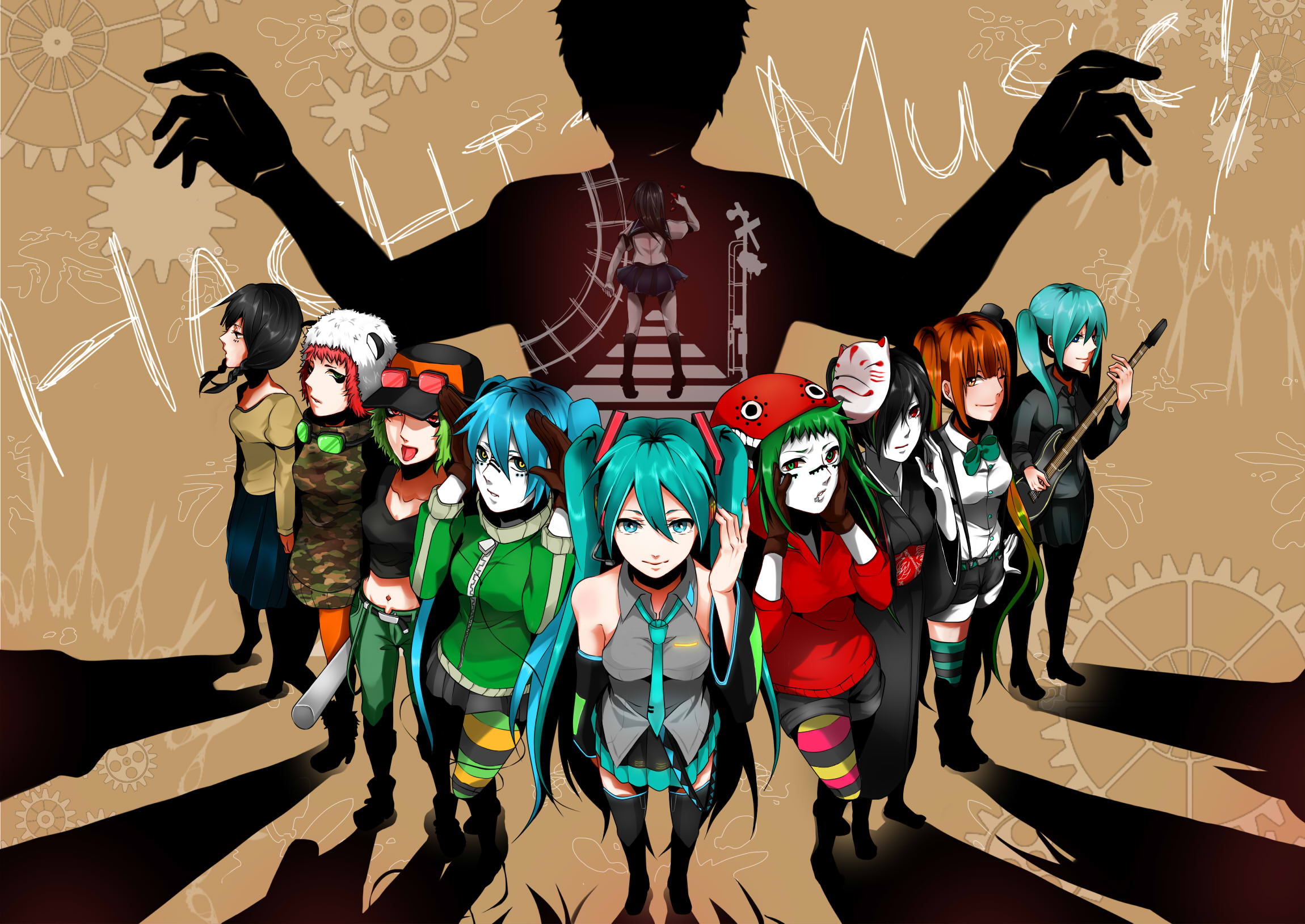

Invisible to Adults: The music video for Yonezu's self cover of "Paprika" has the video's focus character, a mysterious child, only interact with children and babies.Despite the extremely short runtime it captures the most important bits- Yonezu's character warding Shinigami off one by one with a spell and a clap, and the one shinigami he couldn't shake off, represented by a drunk who wandered into the theater, blowing out his spiritual fire and killing him on stage. Homage: "Shinigami" is a two-minute version of the Rakugo story of the same name.Being the ending theme of the Japanese drama Unnatural, a show with strong themes of personal familial loss, it is quite appropriately somber. Grief Song: "Lemon", Yonezu's most famous song, is a song about an individual's experiences after the passing of a loved one."Imi" in Japanese means "meaning", so in keeping with the theme of the song, the number has no meaning.

Goroawase Number: The number 524 is brought up twice in the song "Matryoshka", but interestingly the wordplay comes from not that number specifically, but rather the digits it lacks-1 and 3, which in Japanese can be read as "i" and "mi" respectively.A more somber Hatsune Miku and a group of hooded, masked figures walk the desert and the ruins of what was likely once a place where she performed, with old posters for Miku concerts everywhere. Desert Punk: The setting for the music video for "Suna no Wakusei"/"DUNE".Yonezu's self-cover of the song has a much more melancholy feel, as it and its music video clearly show remembrance for the youths killed in the Hiroshima and Nagasaki bombings. The Cover Changes the Meaning: "Paprika" as officially put out by the children's music group Foorin seems to be a song espouting wonder and excitement, with a bit of nostalgia for summers gone by.


 0 kommentar(er)
0 kommentar(er)
